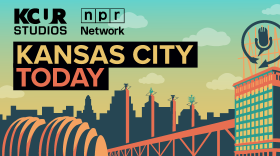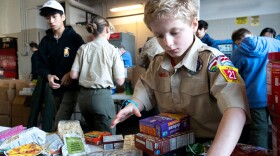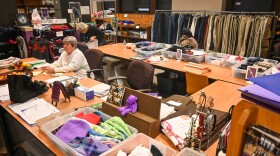-
Federal data found that millions of people struggled to get enough food in 2024. The report will be the final publication of such data after the U.S. Department of Agriculture said it will scrap the annual hunger survey.
-
Missouri submitted a waiver to the U.S. Department of Agriculture requesting to certify candy, desserts, soft drinks, and certain fruit juices as ineligible to purchase with SNAP benefits.
-
For the past four years, a federal program has given Missouri farmers and hungry families a boost by putting locally grown, fresh food on their tables. But the recently canceled Local Food Purchase Assistance Cooperative Agreement won't provide that help this year.
-
The number of women over 40 having babies is increasing nationwide, even as the overall birth rate declines. Plus, a nonprofit food distributor created its own free marketplace to tackle hunger across the country.
-
A federal judge ruled last year Missouri’s food aid system was “overwhelmed,” had wrongly denied assistance to applicants, and had caused many to go hungry. A new bill signed by President Trump will cut SNAP funding and add work requirements, which will likely worsen the problems.
-
Every year just before the holidays, Scouting America troops across the country collect food items for local pantries, right off our front porches. It’s an effort started 40 years ago from here in Missouri.
-
Scouting for Food became a national Scouting America program in 1988, expanding across the country as thousands of scouts collectively gathered hundreds of thousands of pounds of shelf-stable goods for food insecure residents in their local communities.
-
Ahead of the Thanksgiving holiday, KCUR's Up To Date broadcasted from Harvesters Community Food Network in Kansas City to hear how the organization is managing a time of extremely high demand.
-
Joey Thomas has been sponsoring a turkey giveaway for almost 20 years. But he says this year feels different. Low-income families and businesses are all struggling with higher prices, a long federal shutdown and smaller, delayed SNAP benefits.
-
As the Kansas City metro faces rising food insecurity due to reduced SNAP benefits, ongoing economic strains, and heightened demand during the holiday season, NourishKC is making sure people can get the resources they need with dignity.
-
Researchers surveyed low-wage workers and found many report administrative burdens in signing up and keeping vital Medicaid and SNAP coverage.
-
Kansas City area school districts are connecting families with food, clothing and other resources after the federal shutdown exacerbated their financial strain.
Play Live Radio
Next Up:
0:00
0:00
Available On Air Stations











